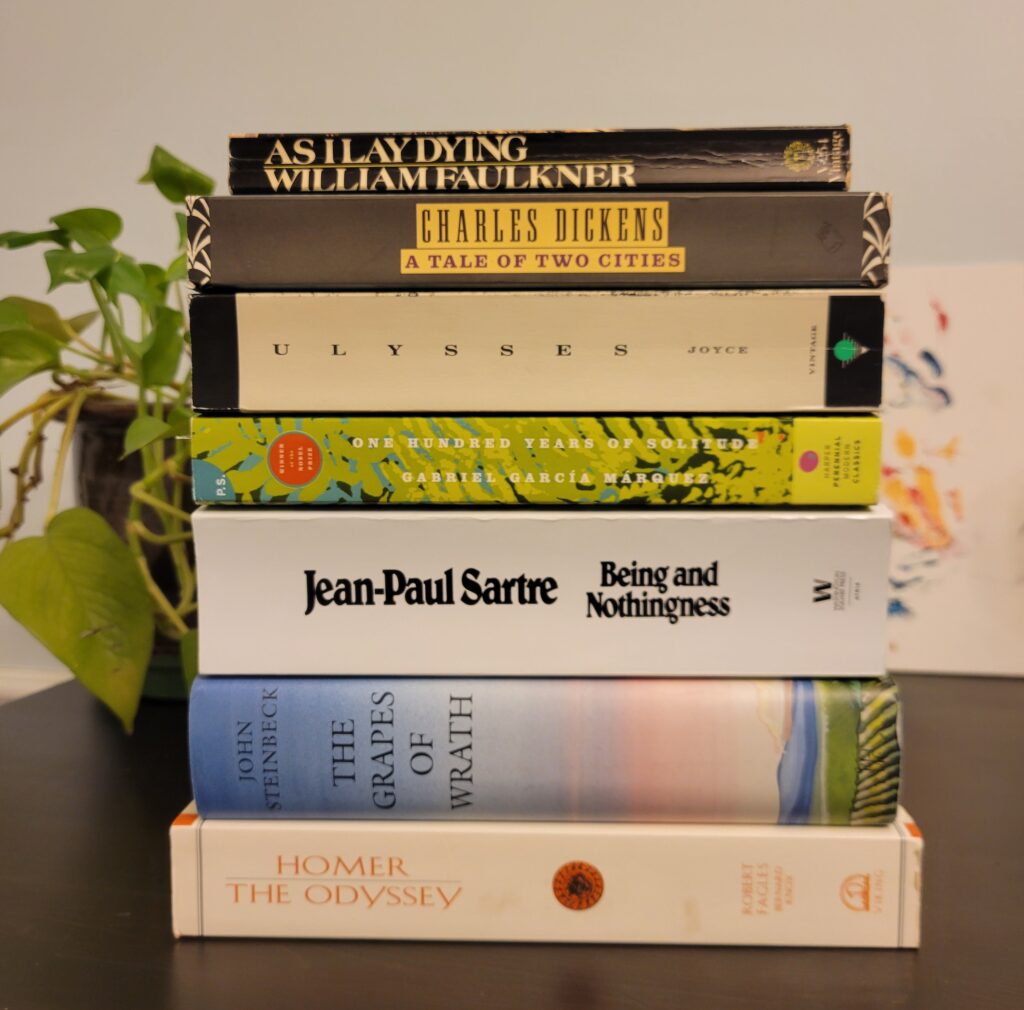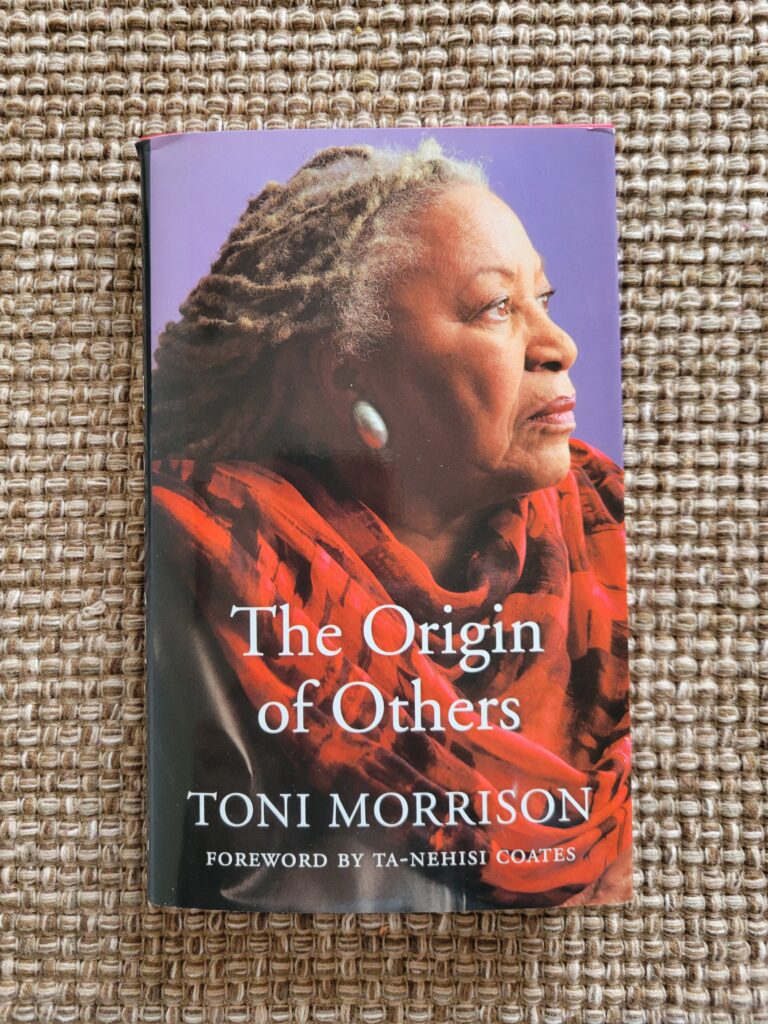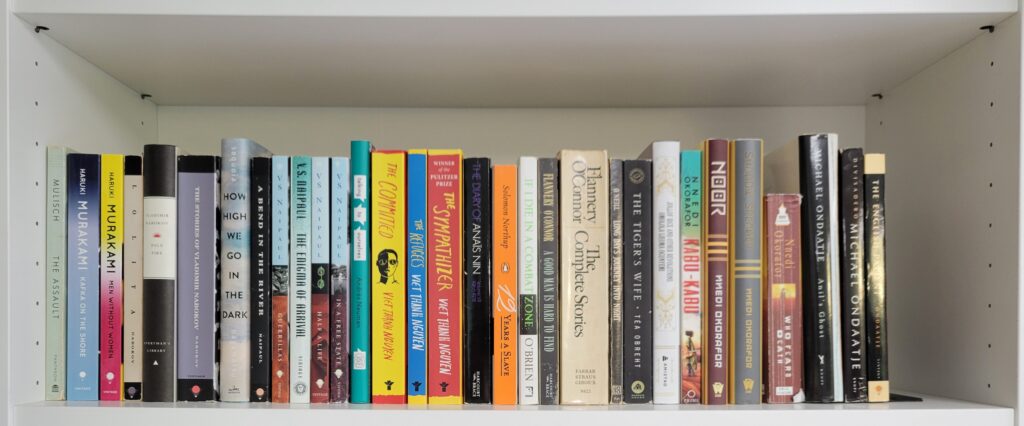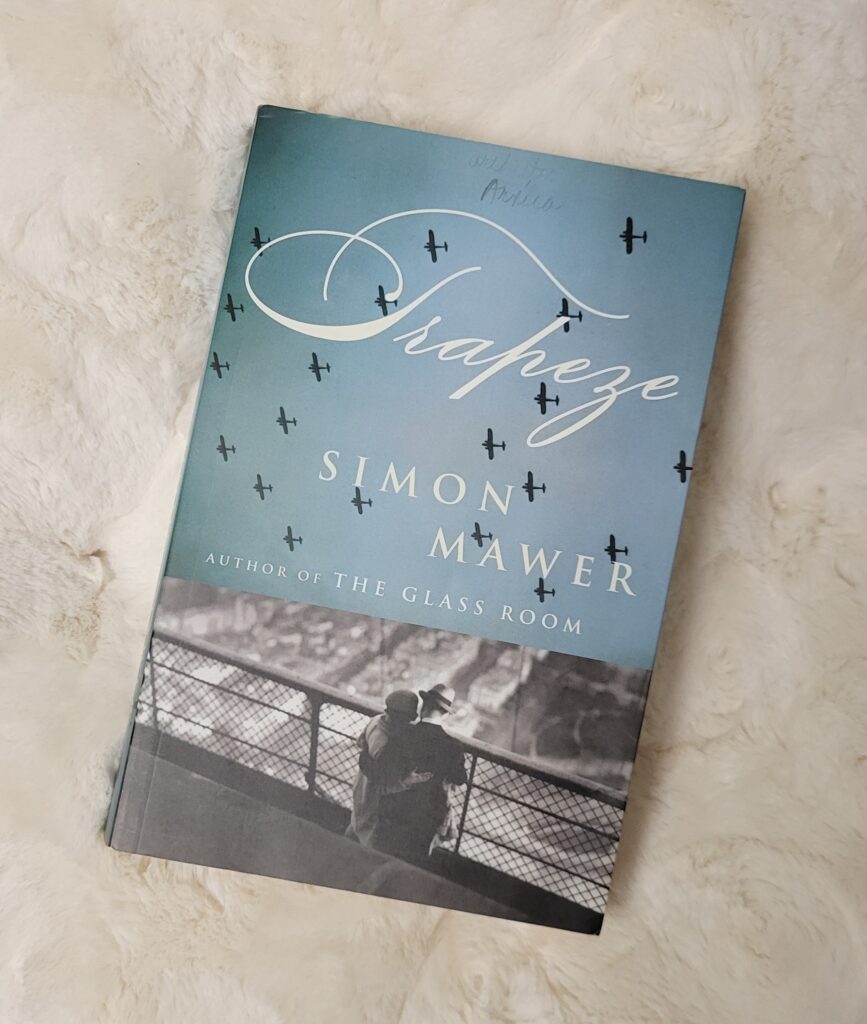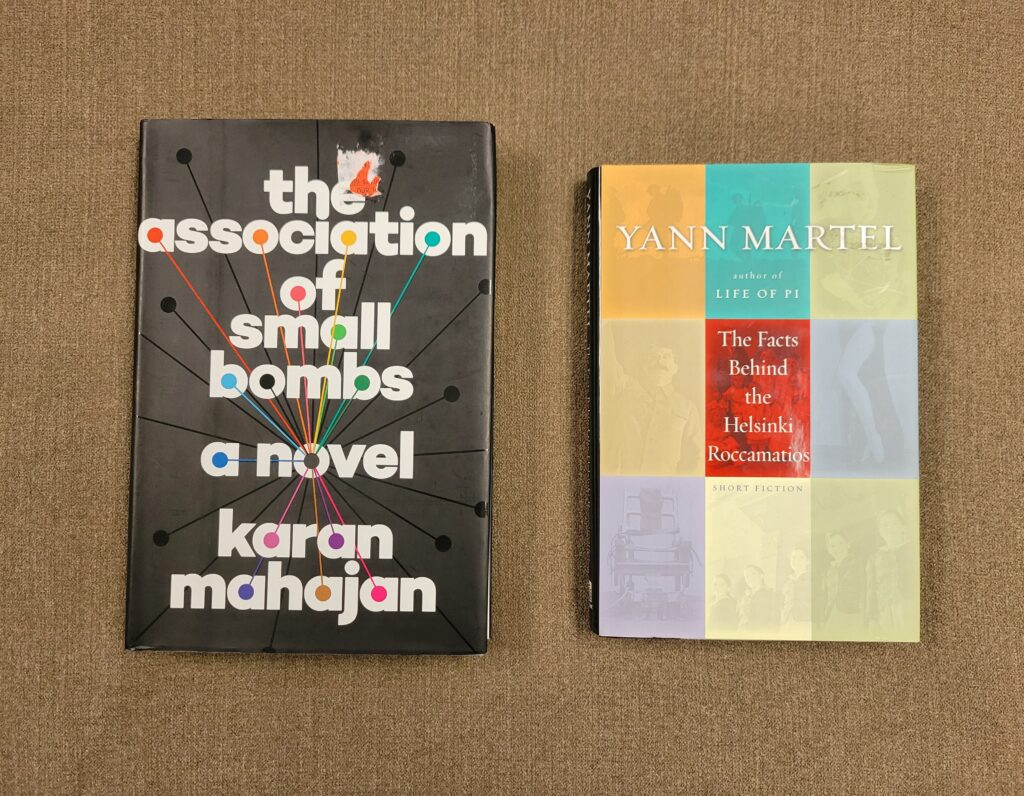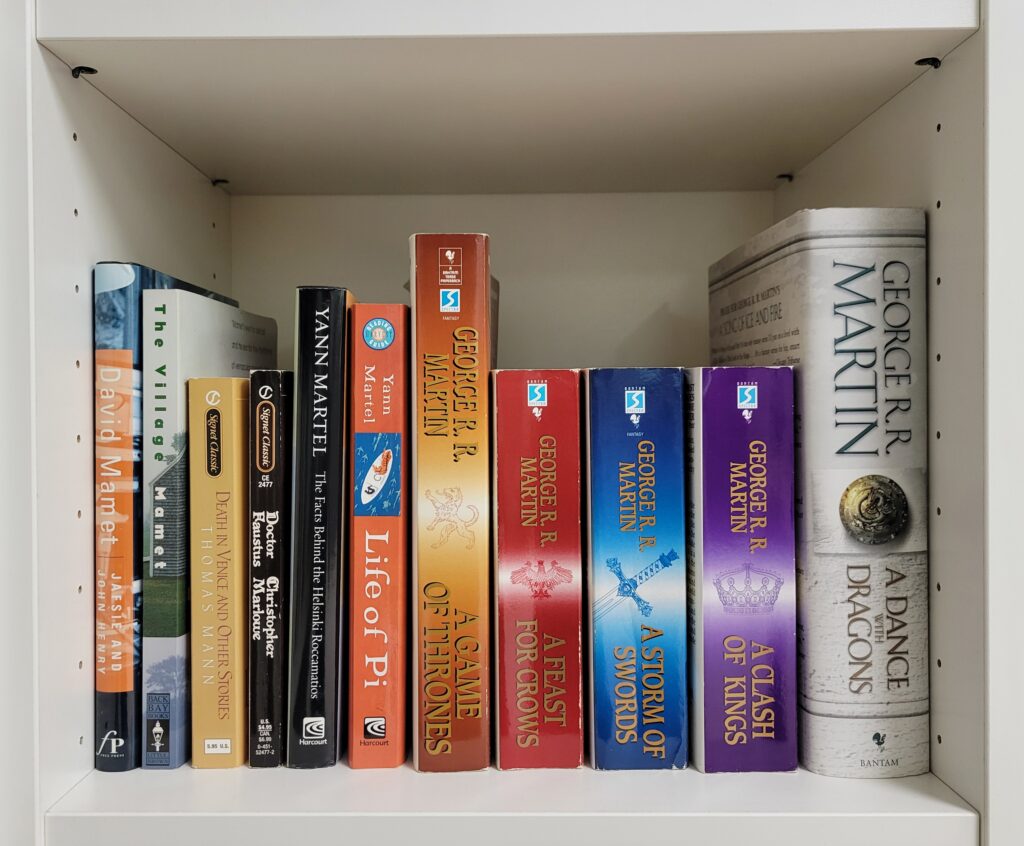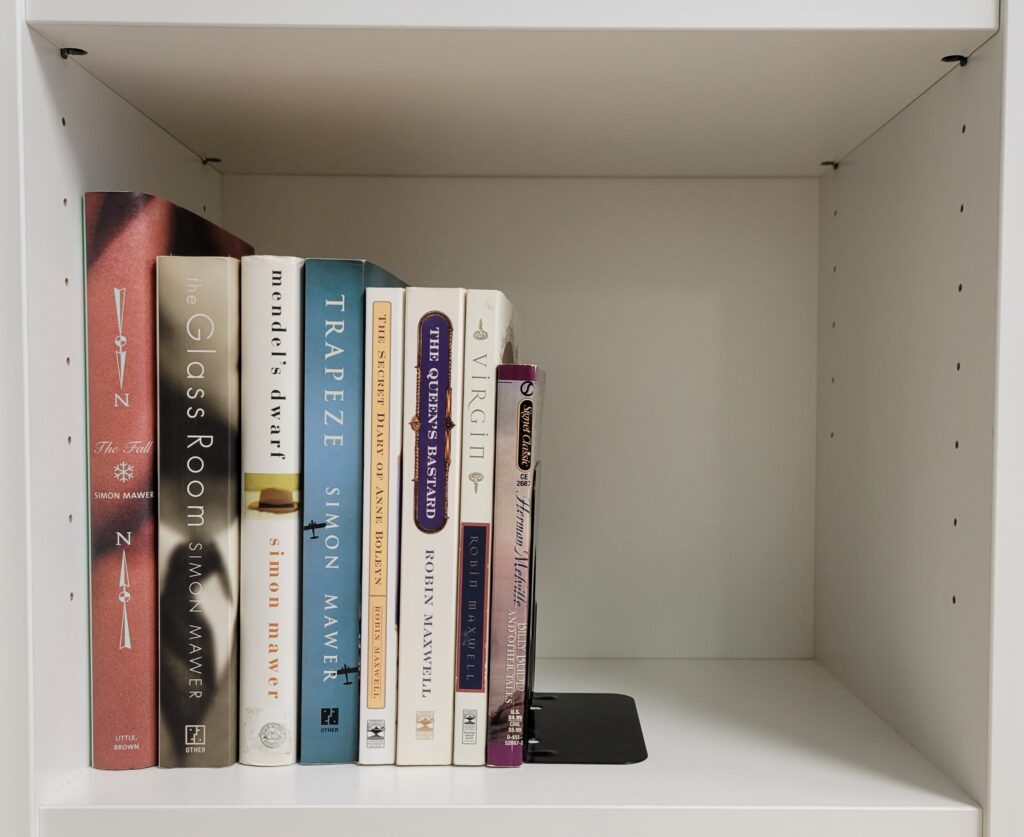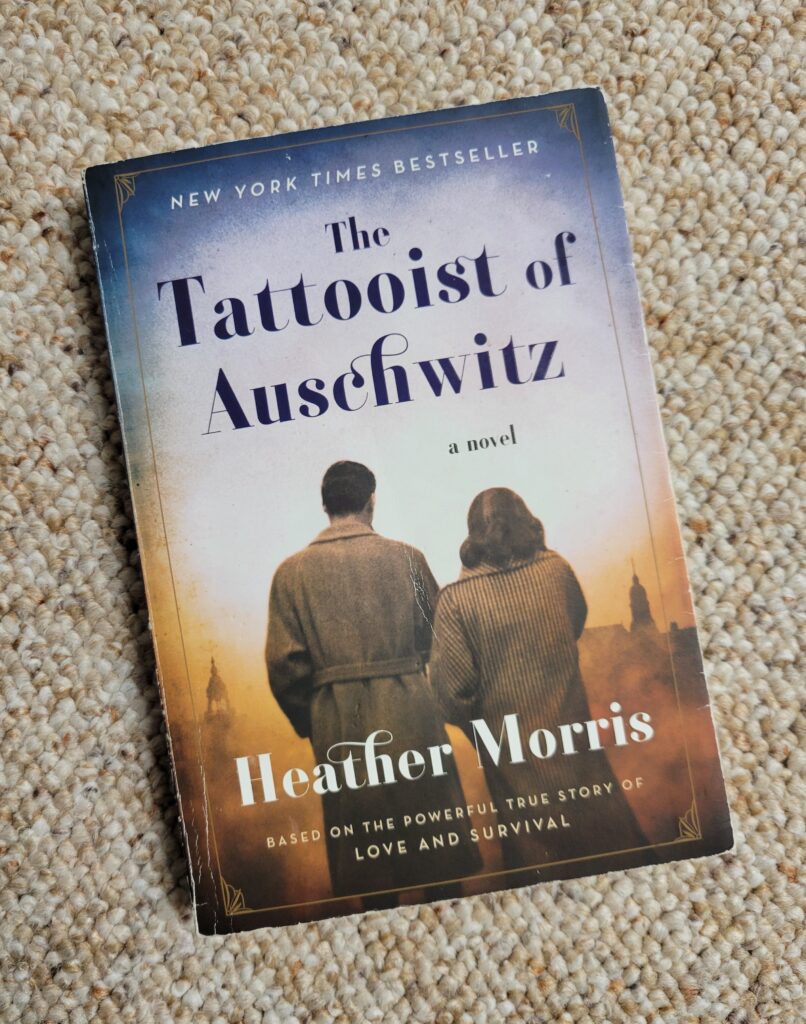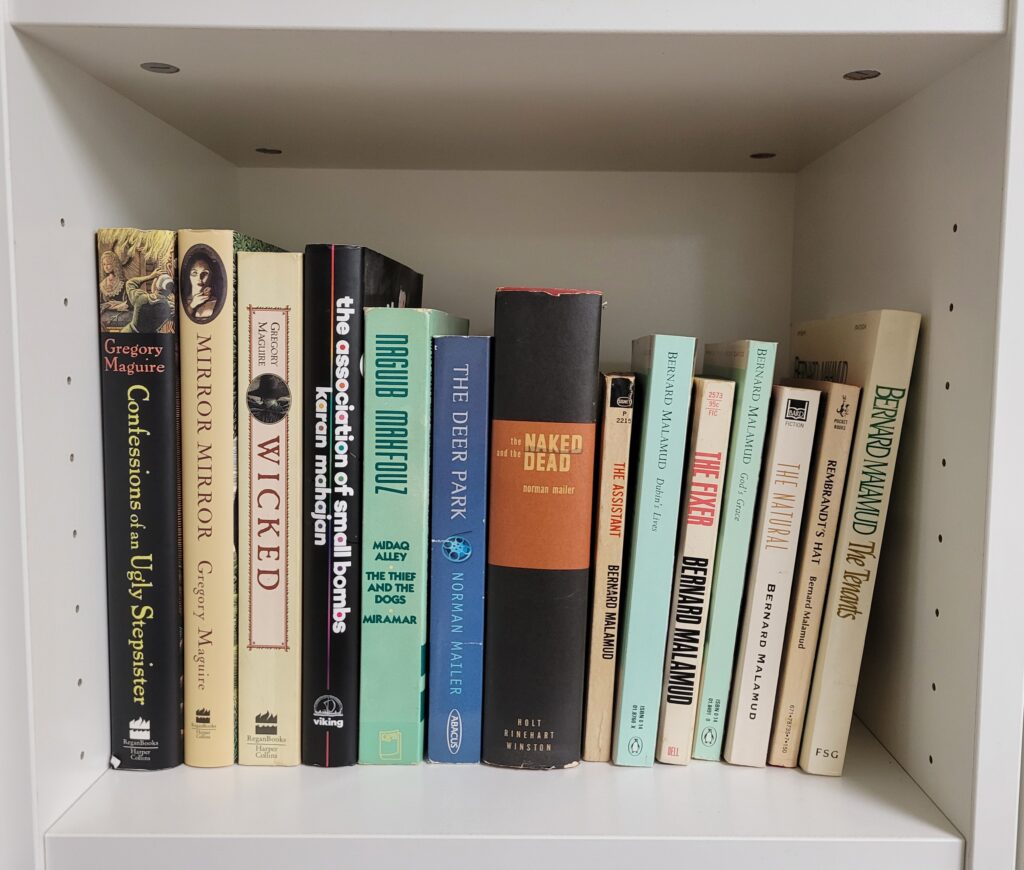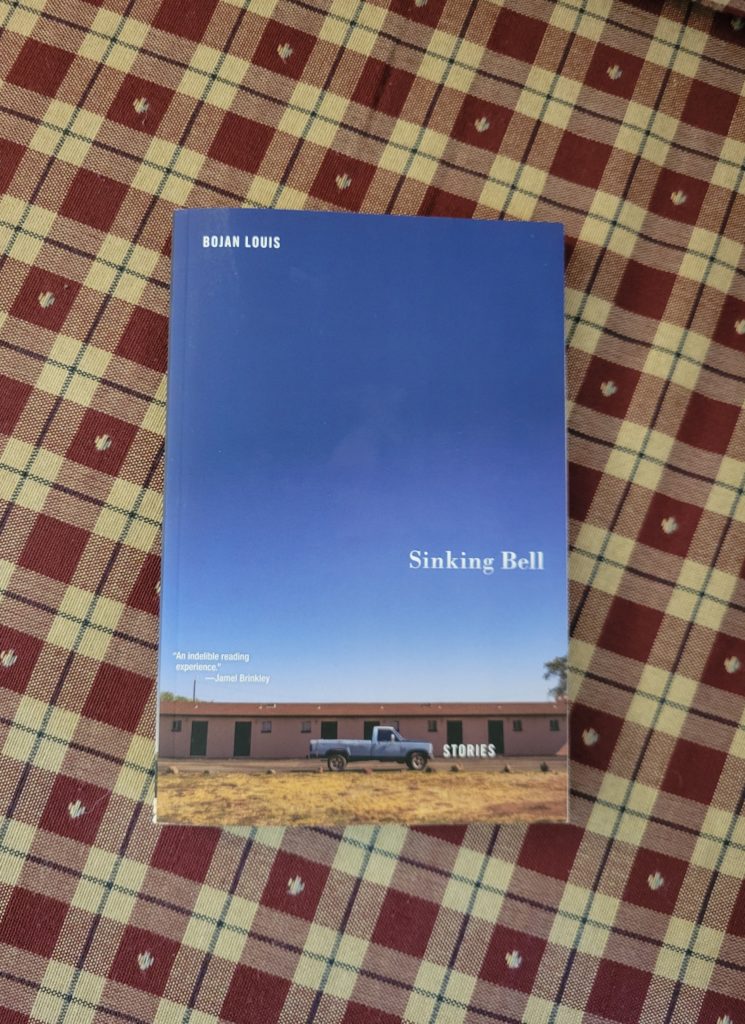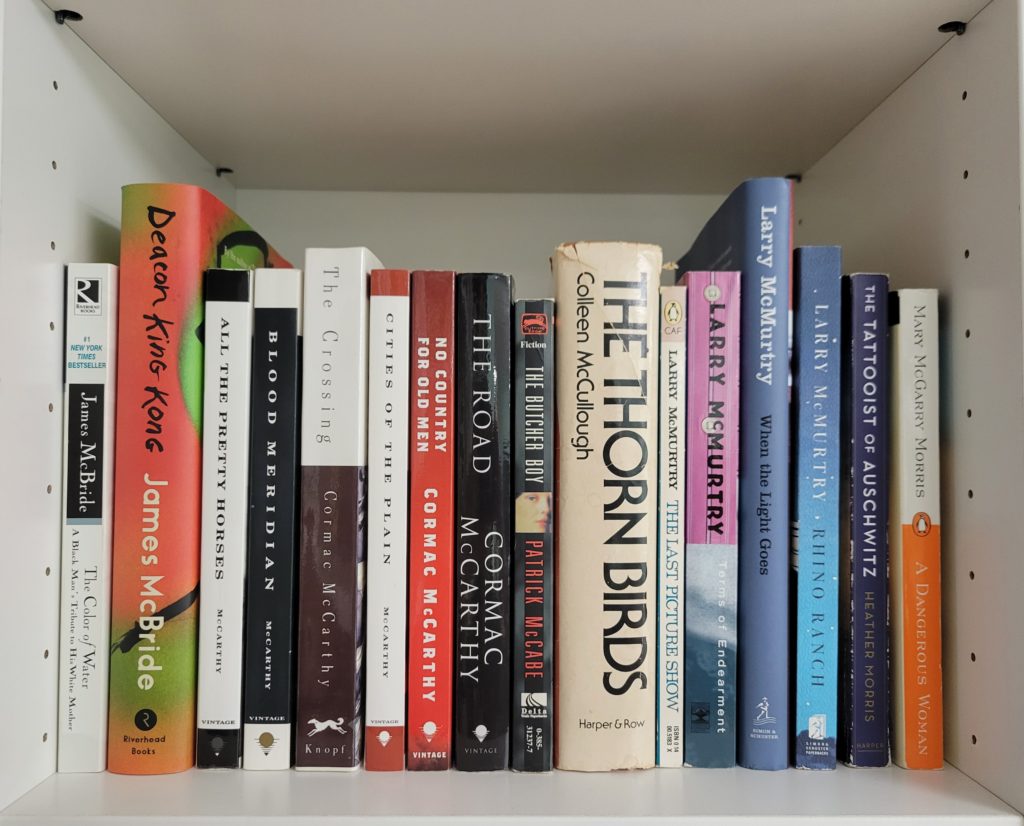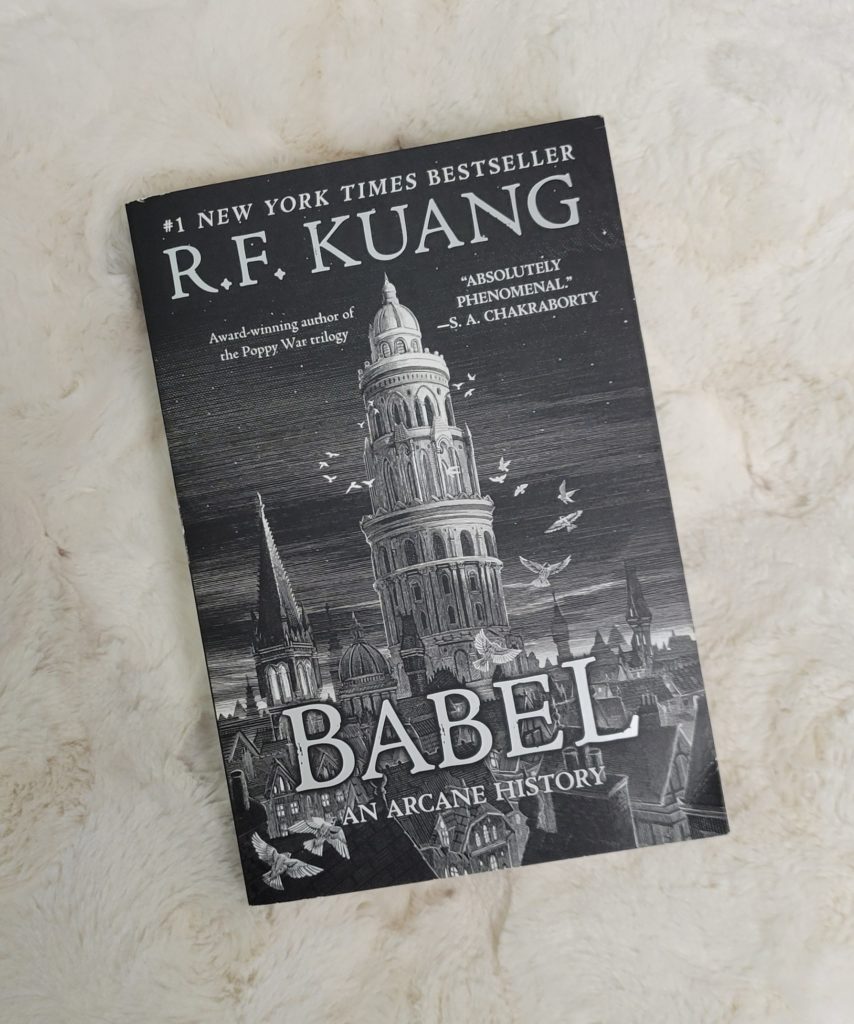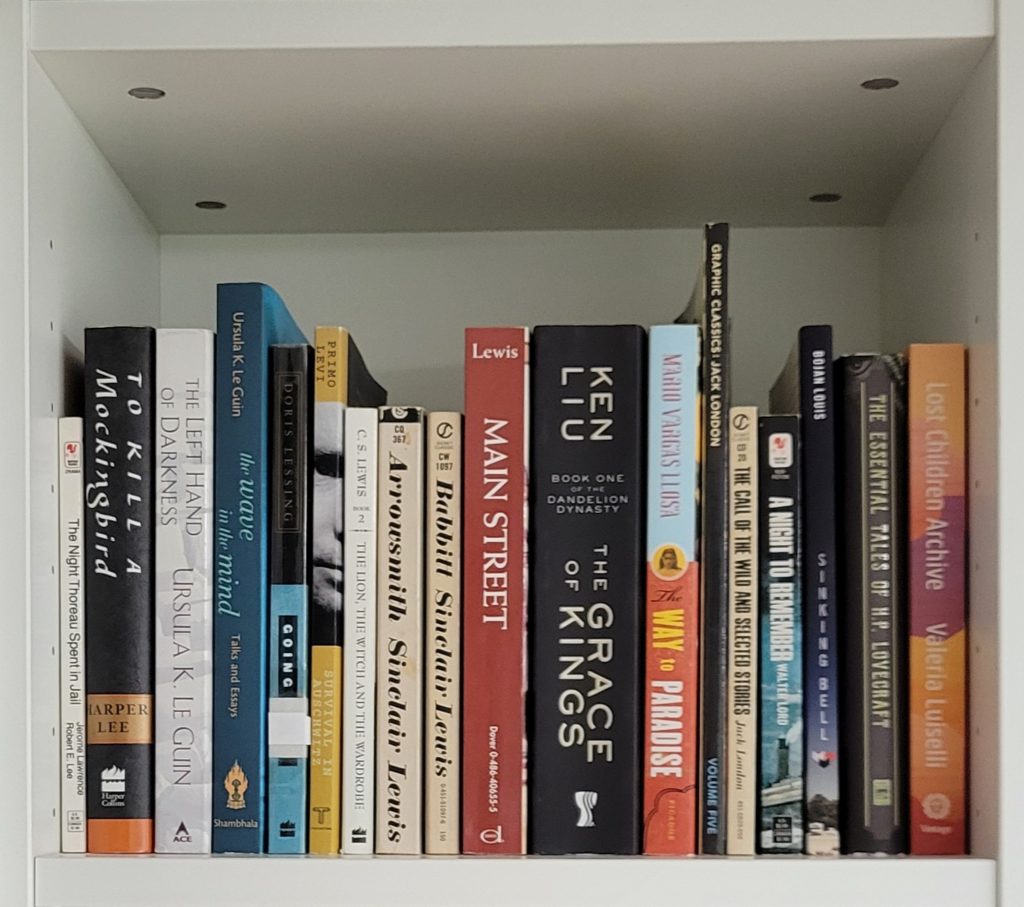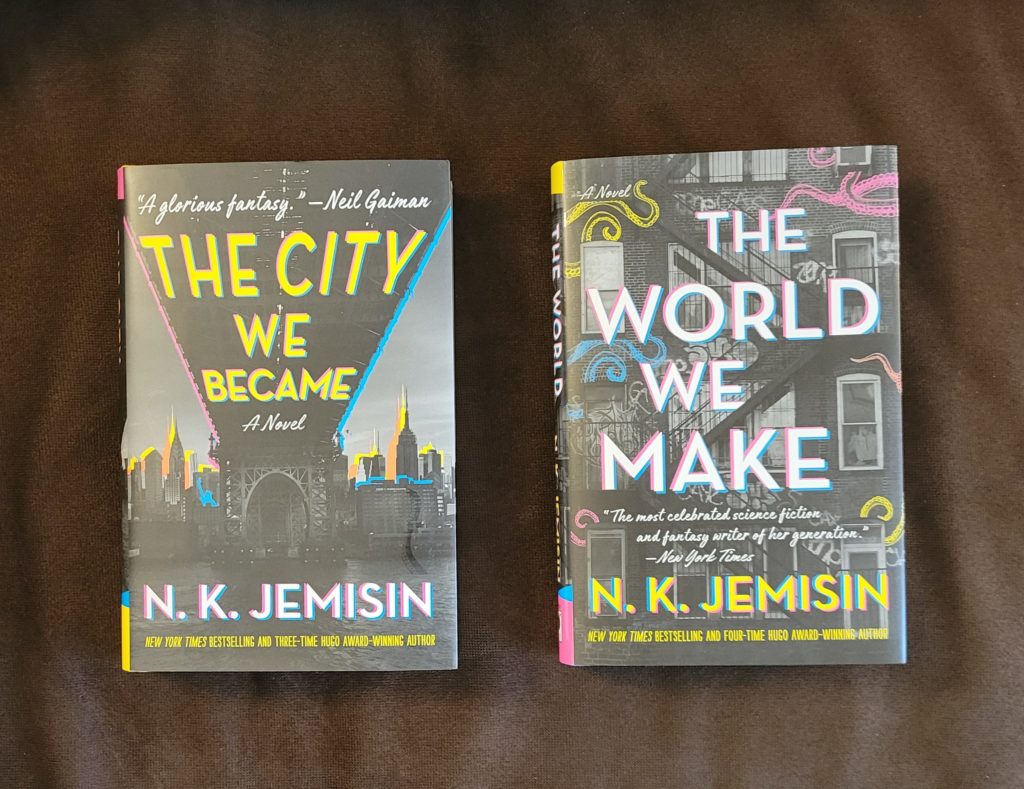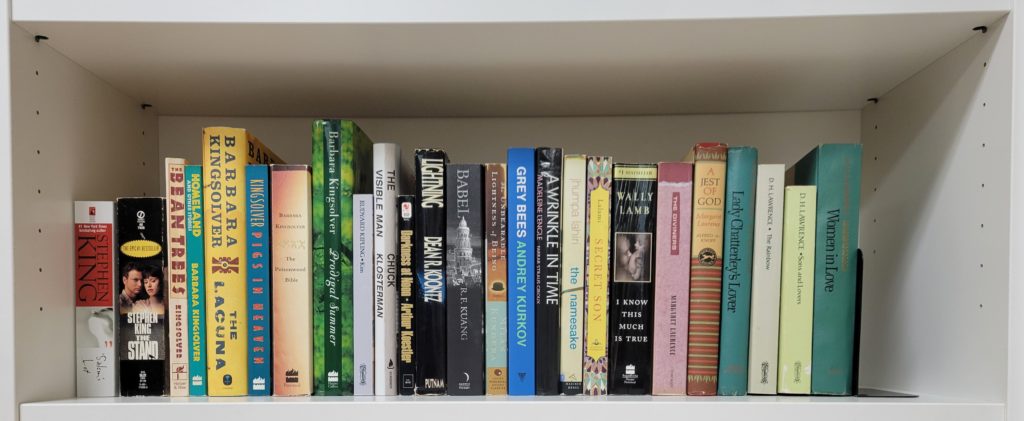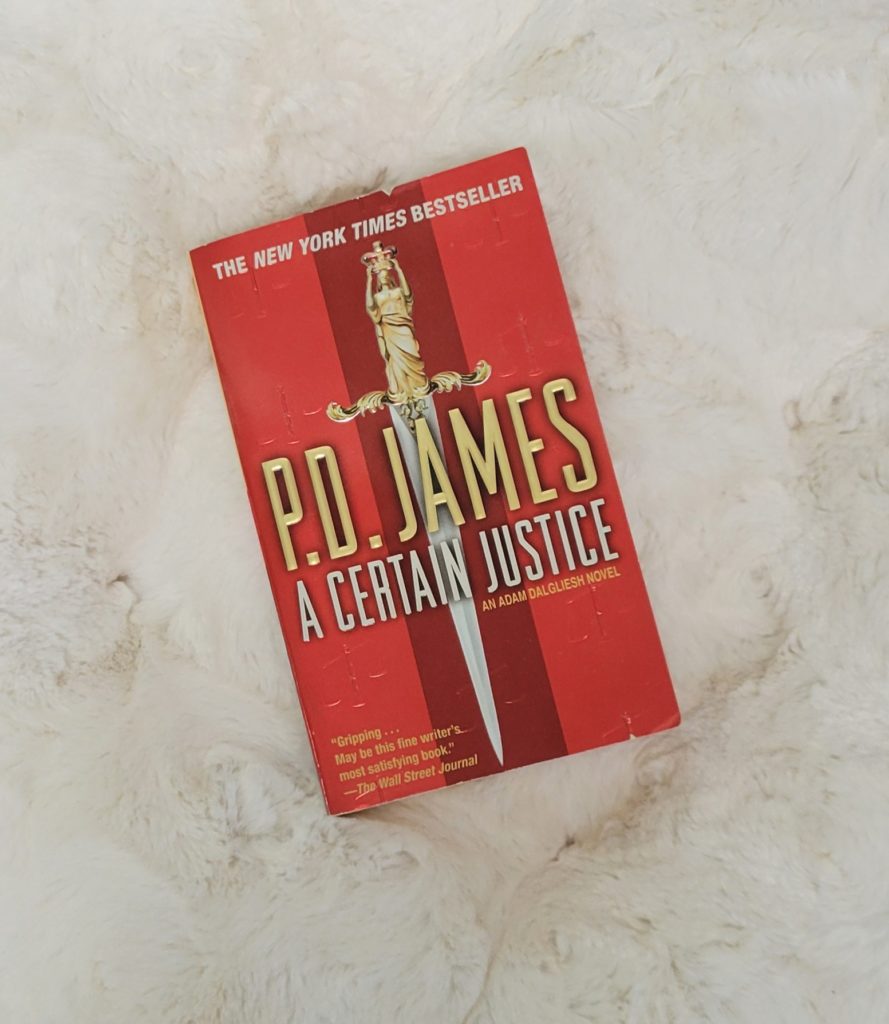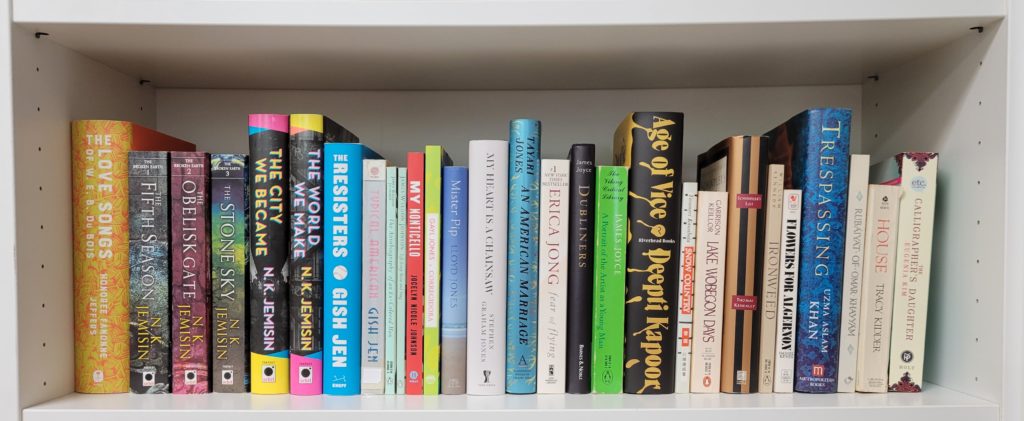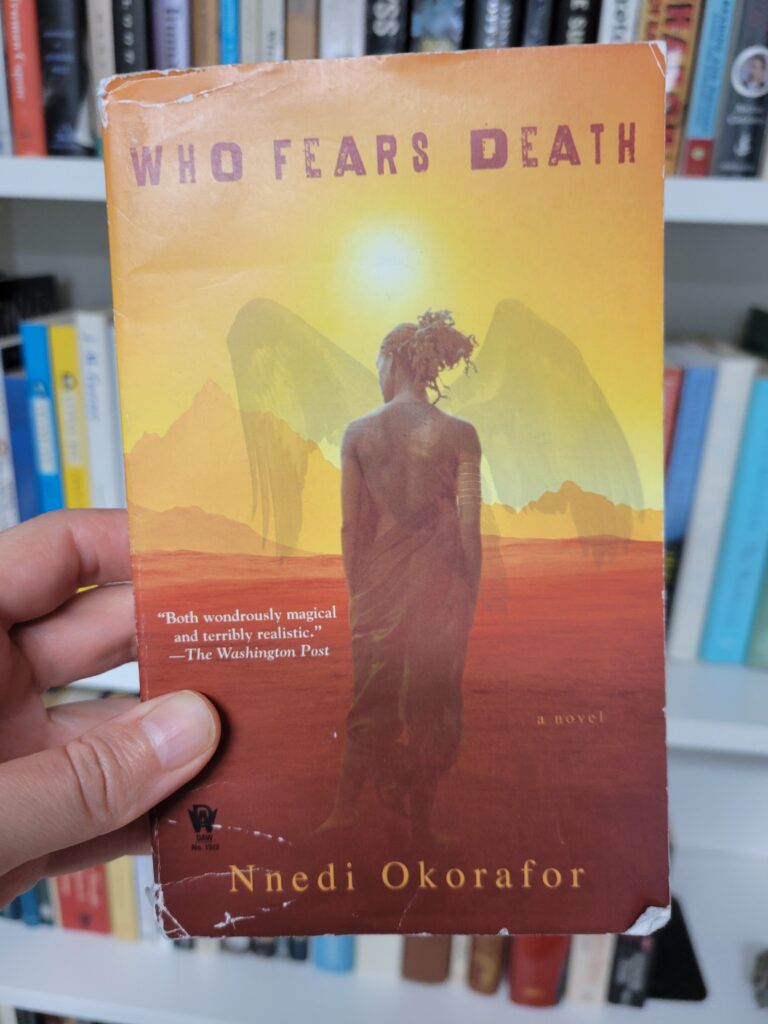
This project completely derailed, and I didn’t start Who Fears Death until January 1st. Like I wrote earlier, 2024 never gave me a break, and I’ll own that I didn’t manage the stress well. I’m working on setting things right, because 2025 has been giving me signs that I need to make major changes. It’s scary, but exciting.
Who Fears Death is brutal and brilliant. There’s so much going on in this novel, and since I treat my bookshelf exploration as reading for fun, I didn’t take notes to do a true review. Nnedi Okorafor’s worldbuilding is brilliant, and I appreciate how she distinguishes her work as Africanfuturism. I learn so much from reading her writing.
Now for shelf #27!
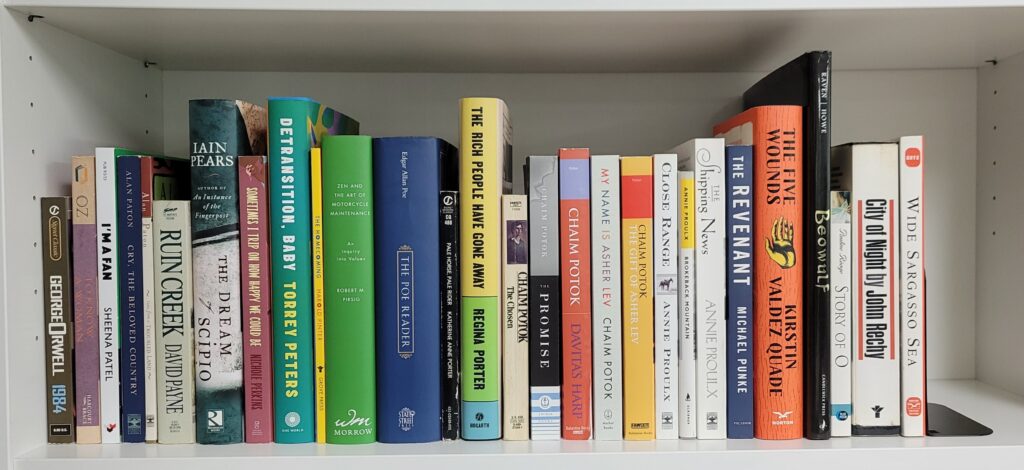
I’ll probably read something by Chaim Potok or The Shipping News depending on my mood and when I have time. I went a little overboard with requesting ARCs, and I have some book club deadlines. I’m definitely more motivated to read when I have due dates or reviews to write in advance of a book’s publication. The downside is that it cuts into my goal of reading the books I already own. I need to figure out how to stop time!
Books I’ve read:
- George Orwell 1984
- Amos Oz To Know a Woman
- Sheena Patel I’m a Fan
- Alan Paton Cry, the Beloved Country
- Alan Paton Tales from a Troubled Land
- David Payne Ruin Creek
- Iain Pears The Dream of Scipio
- Nichole Perkins Sometimes I Trip on How Happy We Could Be
- Torrey Peters Detransition, Baby
- Harold Pinter Homecoming
- Regina Porter The Rich People Have Gone Away
- Chaim Potok The Chosen
- Chaim Potok The Promise
